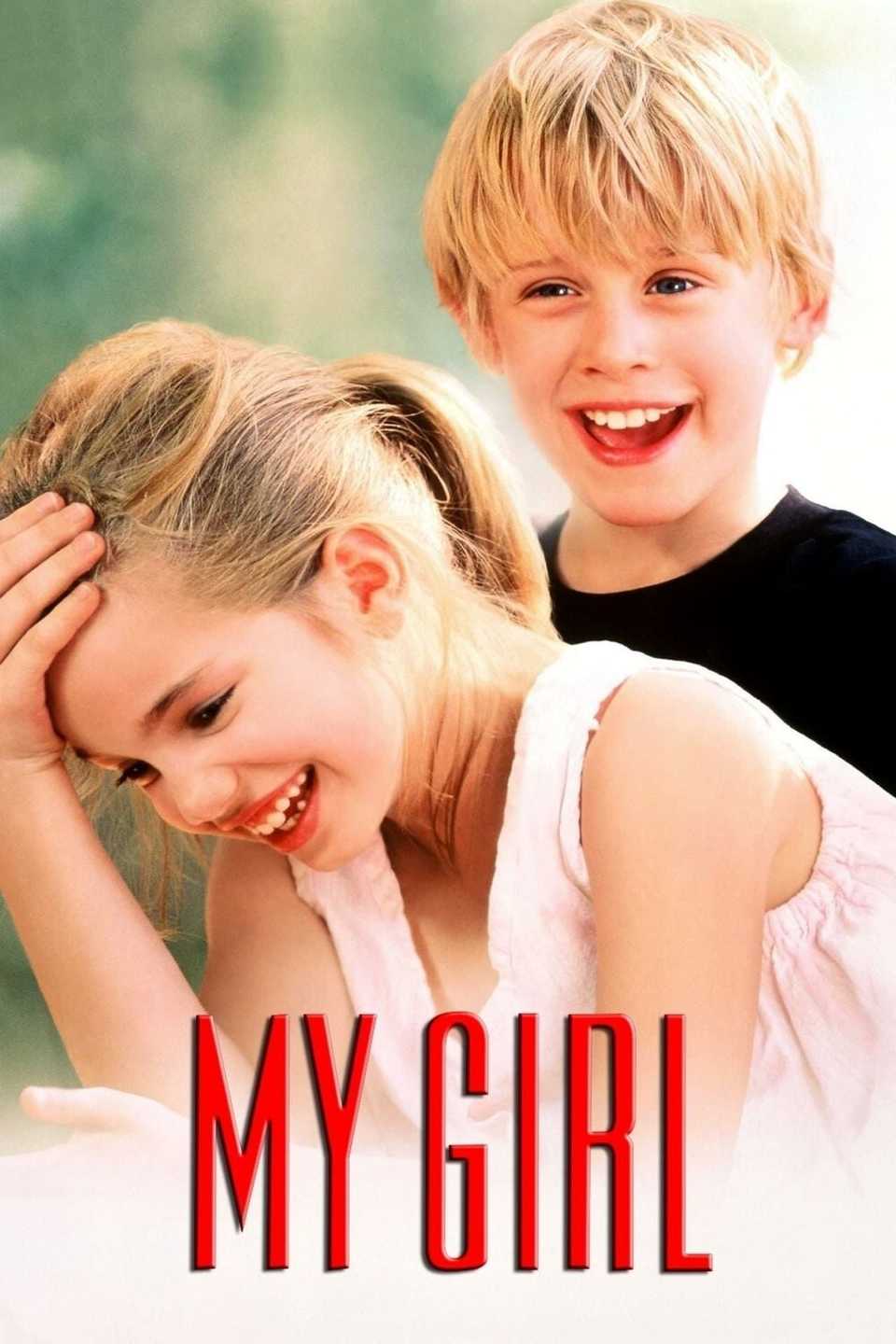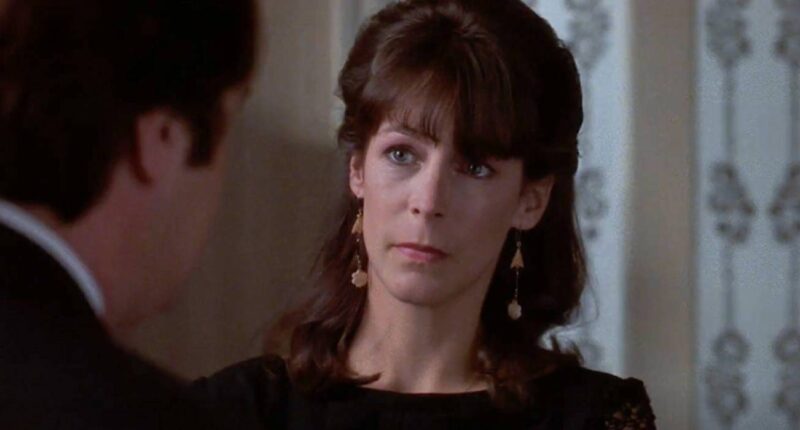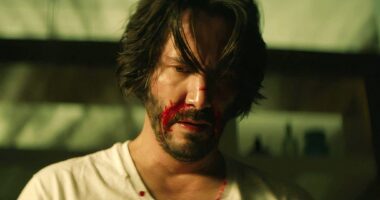Jamie Lee Curtis has done a little bit of everything in her acting career, with horror and comedy being among her biggest hits. She’s taken on Michael Myers with a knife, axe, and arson in the Halloween series. She’s rocked out with a guitar solo in Freaky Friday. But what is a more underrated performance she’s done? Look no further than the coming-of-age film, My Girl, a tearjerker with a heartfelt message, where Curtis plays someone who helps to make it a little easier to deal with the uneasy feelings about death. Without the extreme premises of Curtis’ more famous projects, My Girl lets her create a compelling performance out of the ordinary.
One Summer Changes Everything in ‘My Girl’
It’s the summer of 1972 in a Pennsylvania town, where young Vada Sultenfuss (Anna Chlumsky) is growing up in a rather unusual place for a child. She lives with her widowed father, Harry (Dan Aykroyd), in the funeral parlor he runs, which has caused her to become anxious over death, always worried that she might contract some new illness. Going to the doctor to have her symptoms checked out is a daily occurrence, like hanging out with her closest and only friend, Thomas J. (Macaulay Culkin). This summer also happens to be when Vada starts to transition into adolescence, and big changes are coming into her life. One pulls up in a camper looking for a job, as Shelly DeVoto (Curtis) is a makeup artist in need of work. Besides a slight misunderstanding over who her clients will be, she is more than willing to work at the funeral parlor.
In the 1990s, Curtis was clumsy but adventurous in True Lies, she was manipulative and cruel in Mother’s Boys, then she reunited with the boogeyman in Halloween: H20. In her recent career resurgence, she’s part of the multiverse in Everything Everywhere All at Once, she is unstable and vulnerable in The Bear, and she has made franchise comebacks with the Halloween trilogy and Freakier Friday. Curtis knows how to do bigger performances in those, but that’s not what My Girl needs. She brings a warm presence as Shelly, who finds a place for herself within the Sultenfuss family.
Shelly Is a Quietly Powerful Performance by Jamie Lee Curtis
Two lonely people find comfort in each other when a romance grows between the emotionally distant Harry, who embraces Shelly’s extroverted personality, without her ever pushing things faster than they ought to be. Their first scene together is all the more fun because of how downplayed Curtis’ performance is. Shelly has no idea she’s in a funeral parlor, not a beauty parlor. “I have a wonderful disposition, I put people right at ease,” she says with a big, hire-me smile. “Uh, Miss DeVoto, these people are already at ease,” Harry replies. Much of the comedy that follows with Shelly is similar, where she finds herself in strange circumstances.
At a family dinner, Shelly silently takes everything in with wide eyes: Harry talks with his brother, unbothered by both his aging mother singing loudly and Vada lying on the floor due to her claims of prostate cancer. But she doesn’t judge what she sees, and it doesn’t stop her from falling for Harry. At the end of their first date, Shelly brings Harry into her camper for a romantic scene that builds great chemistry between Curtis and Aykroyd, where she takes charge with just a nudge here and there, until a dance turns into a kiss. But the best scene partner for Curtis is Chlumsky’s Vada, who needs support that she doesn’t get from her father, so she acts up or internalizes her fears.
She is bossy to Thomas J. and secretly feels responsible for her mother’s death during childbirth. These complicated feelings carry over to her relationship with Shelly. No matter how standoffish Chlumsky is on-screen, Curtis responds with patience and kindness. Shelly helps Vada understand what getting her period means and lets the girl try on her favorite blue eyeshadow. The bond changes once Vada finds out Harry proposed to Shelly. The closest thing to physical comedy by Jamie Lee Curtis is during a carnival trip, when Vada releases her confusion and frustration by driving her bumper car into Shelly’s. Each time, Curtis makes you feel the impact of how she tosses her body into the air. But making you laugh is a small piece of her character, because the true power of Curtis’ role is how she helps an estranged parent and child deal with their grief when life rears its ugly head.
‘My Girl’ Is Bittersweet and Uplifting
Death is the highest stakes in Curtis’ horror films for the thrills, but mostly without them directly confronting the pain and sadness from the loss. In My Girl, there is an understanding to not hide from the hurt of the world. Shelly is the only one to notice that living in a funeral home isn’t helping Vada make sense of the sudden tragedy of Thomas J.’s death. It’s not that Harry is a bad father; he desensitized himself after losing his wife. He starts the film by telling Vada, “I’m embalming my high school teacher. No singing.” By the end, he becomes a better father with Shelly’s guidance. “Don’t ignore the living, especially your daughter,” she tells him, and he listens.
My Girl is memorable for the painful loss that feels as personal to viewers as it must be for Vada. The ending may hurt, but it doesn’t leave out hope, with much of it coming from Shelly’s outlook on life. She even becomes a positive, nuanced representation of a stepmother in movies. Of the roles that Jamie Lee Curtis has taken on, even ones that have awarded her an Emmy or Oscar, My Girl is one that she deserves more recognition for.

My Girl
- Release Date
-
November 27, 1991
- Runtime
-
102 Minutes
- Director
-
Howard Zieff










